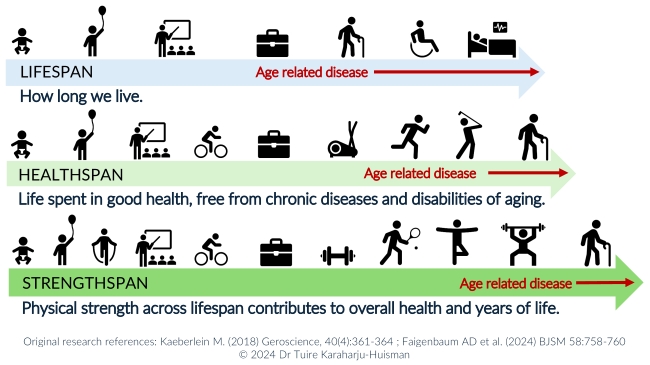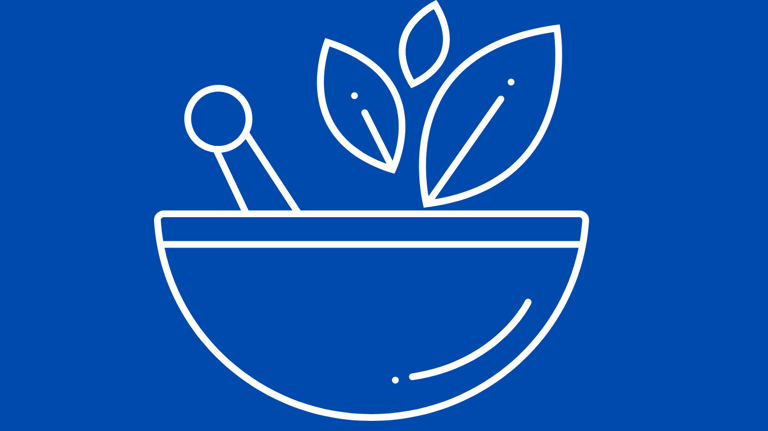Lifespan v healthspan
Lifespan v healthspan - what's the difference and why does it matter? We are all old people in training, so decide now what you want your older age to be like.
Sally Arnison
4/21/20253 min read


For many women, menopause marks more than the end of menstruation—it’s a turning point, both physically and emotionally. It can also be the perfect moment to reframe how we think about aging. For many women in the UK today, life expectancy is around 85 years, meaning living for three decades in menopause.
We often hear about lifespan, or how long we live. But what we don’t hear enough about is healthspan—how long we live in good health. And for women entering midlife, understanding the difference is more important than ever.
Lifespan: living longer
Lifespan is simply the total number of years you live. And the good news? Women tend to live longer than men. But living longer doesn’t automatically mean living well.
In fact, women often spend more years dealing with chronic conditions like osteoporosis, heart disease, and cognitive decline—many of which begin to surface around the time of menopause. That’s where healthspan becomes crucial.
Healthspan: living well
Healthspan is about the quality of life—staying physically active, mentally sharp, and emotionally balanced for as many years as possible. It means minimizing the number of years spent managing illness or relying on medications and treatments.
And menopause is the perfect time to start prioritising your healthspan. Personally, I am very keen to to live a very long life, but I want to make sure that I am able to be fit, active and independent for as long as I possibly can be, and that means putting the work in now.
Menopause: the midlife checkpoint
During perimenopause and menopause, your body goes through a profound hormonal shift. Estrogen levels drop, metabolism changes, bone density can decline, and symptoms like brain fog, fatigue, and sleep disruptions may appear.
This phase can feel like your body is betraying you—but it’s actually giving you valuable feedback. It’s telling you it’s time to shift gears and focus on sustainable health strategies that support your future self.
Why this shift matters for women
Longer doesn’t always mean better: Women live longer, but often with more years of disability. The goal is to compress that time—pushing illness and frailty to the very end of life.
Hormonal changes reveal weak spots: Menopause can highlight imbalances or risks that were previously hidden. Now’s the time to be proactive.
It’s not too late: Whether you’re 45 or 65, it’s never too late to invest in your healthspan.
Small, consistent changes can have powerful effects.
How women can boost healthspan during menopause
This stage of life isn’t about “anti-aging”—it’s about pro-vitality. Here’s how to start:
🥗 Nourish your body
Eat more protein to support muscle maintenance.
Focus on calcium- and vitamin D-rich foods to protect bone health.
Cut back on ultra-processed foods that mess with hormones and inflammation.
🏋️♀️ Strengthen and move
Resistance training helps counter muscle loss and supports metabolism.
Walking, yoga, and mobility work keep joints healthy and reduce stiffness.
Even 20 minutes of movement a day makes a difference.
😴 Prioritize rest
Sleep often becomes tricky during menopause. Focus on routines, limit screen time before bed, and explore natural supports like magnesium or CBT-i.
💆♀️ Manage stress
Chronic stress can worsen menopausal symptoms and accelerate aging.
Try meditation, journaling, or even therapy—emotional health is physical health.
🧠 Stay sharp
Challenge your brain with learning, reading, and staying socially connected.
Cognitive health is a huge part of healthspan—don’t ignore it.
🩺 Partner with healthcare
Get regular screenings (bone density, cholesterol, mammograms).
Talk to your doctor about hormone therapy or alternatives if symptoms are interfering with daily life.
The takeaway
Menopause is not the end—it’s a transition. And it offers a powerful opportunity to refocus your goals from just living longer to living better.
Lifespan is the number of years you live.
Healthspan is how good those years feel!
So don’t settle for just more candles on your birthday cake—aim for more energy, more confidence, and more joy in your everyday life. Because when you invest in your healthspan during menopause, you’re setting the stage for a vibrant, empowered second act.


